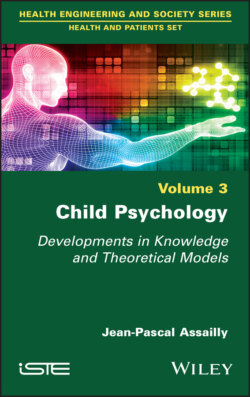Читать книгу Child Psychology - Jean-Pascal Assailly - Страница 65
2.2. The issue of genetic screening
ОглавлениеGenetic diseases represent one of the leading causes of infant mortality (20%) and are responsible for approximately 20% of hospitalizations in children. Among these genetic diseases, a large number occur through a recessive mechanism (there are more than 3,000 known recessive genetic diseases). In the case of autosomal recessive diseases, the parents, carriers of an altered allele of the “recessive” gene, do not become sick because the second allele is normal. It is the meeting of the two mutated alleles of the same gene that will be responsible, in one in four cases, for the birth of a child affected by the genetic disease linked to the alteration of this gene.
It is estimated that 2% of couples (or 1 in 50) are affected by this risk of autosomal recessive or X-linked genetic disorder, which represents approximately 3,000 births per year in France.
The evolution of genome-wide high-throughput sequencing means that it is now technically possible to screen couples at risk for a large number of recessive genetic diseases. In the current state of knowledge, genetics makes it possible to predict high risks of certain diseases and to develop screening or prevention strategies for predisposed individuals.
However, in some cases, prediction concerns diseases of particular severity, for which treatment and/or prevention are still limited. In these cases, prenatal diagnosis may be proposed to the parents with a view to a termination of the pregnancy for medical reasons if reliable genetic markers are identified in the parents and the fetus. The characterization of the genetic anomaly can also justify the proposal of a pre-implantation diagnosis, which allows the couple to avoid the medical termination of pregnancy by selecting the unaffected embryo.
Cystic fibrosis and infantile spinal muscular atrophy are among the most serious of genetic pathologies from autosomal recessive transmission in France in terms of frequency, with 1 person in 32 and 1 person in 40, respectively, carrying a predisposing genetic variation within a general population.
Infantile spinal muscular atrophy, in its major form (Type 1, which affects 60% of patients), is a disease that is most often fatal before the age of two. In milder forms, the amyotrophy develops in early childhood but the prognosis is often life-threatening before adulthood.
From a technological and medical point of view, it is now possible to identify a large proportion of people who are healthy carriers of a genetic variation that is deleterious for these pathologies. This type of screening is called preconceptional screening.
For autosomal recessive diseases, union with another carrier provides a 25% probability of having an affected child. In this case, several proposals can be put forward to the parents: pre-implantation or prenatal diagnosis, egg donation or adoption.
Currently, in France, preconceptional screening is limited to genetic counseling of parents and relatives of patients with severe recessive genetic diseases (or a known heterozygote). Genetic analysis looks only for genetic variations of the gene involved in the family disease.
The current question posed by advances in knowledge and technological progress, mainly linked to the deployment of high-throughput sequencing technologies, is therefore essentially ethical: should the proposals for preconceptional screening of some or all identified recessive diseases considered serious and incurable be extended to the general population for couples who wish to have children?
